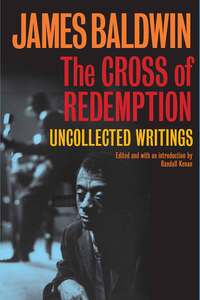 http://en.wikipedia.org/wiki/File:Chinesischer_Maler_von_1238_001.jpg
http://en.wikipedia.org/wiki/File:Chinesischer_Maler_von_1238_001.jpg
The Angry Monk
Shozan Jack Haubner
Zen practice stirs up energy and emotion, and it can be downright ugly
A LOT OF PISSED-OFF PEOPLE WIND UP AT OUR MONASTERY. Th is place has a tractor beam like the Death Star in Star Wars that pulls in everyone within a thousand-mile radius with four-letter words on the tips of their tongues. Her marriage tanked, he’s got an itch in his brain he just can’t scratch, she’s 45 and smells of cabbage and lives in a small studio apartment and nobody ever calls her back. Th ey all wind up here, sold on the promise that Buddhism can alleviate suff ering.
I said “they” all wind up here, but I guess I mean “we.” I recently had one of those moments when, upon the muchanticipated departure of an enemy who, as a Buddhist, I could never quite admit was an enemy, I found myself peering around the zendo and thinking, “Wow, there are no assholes living here anymore.” Whereupon came a sinking feeling: “Wait a minute, there’s always at least one. So if I’m looking around the zendo and I can’t fi nd him—guess who the asshole is!”
Zen practice is good for angry people. Th e form is tight. It squeezes that deep red heart-pulp, pushing up emotions from way down inside you. A lot of stuff comes up when you do this practice. Zen gets your juices fl owing. And with these juices come seeds—the seeds of your behavior, your character, your anger, all fl ushed out into the open for you to see.
In Zen we learn that human consciousness is an eminently natural operation. You plant a seed, it grows. Similarly, when something happens to you on the outside, in “the world,” the seeds of this experience take root within you, becoming sensations, thoughts, memories—your inner life. Conversely, when something arises within you, some inner experience, a notion, emotion, or dream, then the seeds of this inner event are disseminated on the outside, in the world, through your words and actions. Buddhists call this codependent origination: all things arise together in a mutually interconnected and interpenetrating web of being. “To see the world in a grain of sand,” William Blake wrote. Or as that great metaphysician Tom “Jerry Maguire” Cruise put it: “You complete me.”
Sounds romantic. But what if the seeds at the root of your behavior are the seeds of hate and anger?
A year ago I was walking down a bustling city street with my mentor, whom I love. We got into a fi ght about something, and I smacked him. It came out of nowhere and was meant to be light. Only it clearly did not come out of nowhere, and it was not light. I can still hear the thwack of my open palm against his belly. Th ere was a long stretch of silence, wherein I should have begged for his forgiveness. But I couldn’t admit to the violence that had just erupted from within me. I couldn’t tell whether I meant it, whether it was real, where it came from, and how it got there.
I have violence in me, unfortunately. Th e seeds were planted long ago by my father, the poor man. How about all the times he didn’t whack me? Th e time he sighed and let it go when I stole one of his antique fi rearms and ran around the house, or when I sat on a sibling and released a cloud of fl atulence? No, I remember only the three or four moments when his anger broke through.
All it takes is one seed. I’ve apologized, and even sent a cute card. But my blow planted a hate seed in my mentor, and something irreconcilable has grown between us. I can’t seem to reclaim the friendship. I feel like I’m losing him.
Zen practice can be a tricky thing, because if it is done right, sooner or later all the issues and energies you’ve been repressing your whole life will ooze, trickle, and burst to the surface through your tight little smile. And I’m afraid that the practice itself doesn’t necessarily equip you to deal skillfully with these issues and energies.
Th is is one of the big misconceptions about spiritual work: that, applied correctly, it will make us “better people” (whatever that means). Zen is not a psychiatric or therapeutic discipline; it’s a spiritual one. It’s supposed to get energy moving on a deep, fundamental, life-changing level. Its purpose is to orient you Toward the truth/reality, whatever this takes. It’s not supposed to boss you around with behavioral or self-help dictates, or to shoehorn you into the slipper of well-adjusted citizenhood.
In other words, spiritual work isn’t always “instructive”—it’s transformative, and this kind of transformation can get messy.Th e Sanskrit term for this is clusterfuck.
Some people, for example, seem to be born angry. Not me.I was born a coward. So when the energy gets moving through Zen practice and I suddenly become angry rather than a quivering eunuch, this can feel like an improvement—or at least a new way to be screwed up rather than the same old patterns of screwed-upness. A sharp word suddenly tastes good in my mouth. Anger takes on the illusion of upward spiritual mobility in comparison with my habitual cravenness. In reality, however, it’s a lateral move—to an adjacent room in the same hell.
None of this happens in a vacuum. Zen is a group practice, but the thing about groups is that they’re made up of people, and we all know what people are like. So not only does Zen practice fl ush your issues out into the open, it does so within a certain context; it fl ushes them into the “container” of your relationships with fellow monks and nuns. Energies and issues that had no discernable dimension within you are externalized and embodied with the “help” of your peers, one of whom, say, unwittingly takes the form of your stepmother who once bullied and humiliated you.
Meanwhile, to this peer you represent the weakness and stupidity within himself that for more than 30 years he has felt the compulsive need to stamp out, as his father once tried to stamp it out of him. (In beating ourselves up, we usually pick up where our parents left off .) Only neither of you realizes (at least initially) that the other represents something within yourself that needs to be dealt with, for it is only in the dramatic playing out of your interactions that these powerful patterns and deep psychological dysfunctions are brought to light.
I defer to Carl Jung, who spent a lot of time in either a nuthouse or a monastery. “Th e psychological rule says that when an inner situation is not made conscious, it happens outside, as fate,” Jung said. “Th at is to say, when the individual remains undivided and does not become conscious of his inner opposite, the world must perforce act out the confl ict and be torn in two opposing halves.”
It’s amazing to watch sometimes. Th ese monastery battles royal can be downright epic. Forget about what happens when an immovable object meets an irresistible force. What happens when a weenie who’s sworn off his cowardice meets a monster who can’t help himself from bullying?
“First law of thermodynamics: Energy can be neither created nor destroyed. It simply changes forms!” So went the mantra of an erstwhile Zen peer, one of those quasi-scientifi c mystic types forever trying to link quantum physics with whacked-out spiritual mumbo-jumbo. It you ever disagreed with him, he trembled, his jowls purpling: “Th at’s . . . Just . . . Your . . . Ego!”
A regular fury farmer, this sower of hate seeds was one of those unfortunate American Zen sangha fi xtures whose respect and admiration for the teacher is in inverse proportion to his resentment and suspicion of his peers. Once, a fed-up nun, ornery and pugnacious in her own right, shot back: “Listen, you! In a universe that wastes nothing, where does the butthead energy go when you lose your temper? What form does it change into?”
In about a week she got her answer. One morning, this troubled monk we’ll call “Tirade-san”—towering over six feet, girthy, garbed in his turquoise stretch pants and a T-shirt with a picture of the cosmos and an arrow indicating You Are Here— exploded at the densu (monastery greeter) when she forgot to fetch a student from the airport. She in turn barfed a curdled remark upon the tenzo (cook) aft er he misplaced her laminated chant sheets. Th e tenzo then went Vesuvius on the shoji (zendo mother) when she innocently swung through the kitchen door to brew some green tea.“
Knock before entering!” the normally mild-mannered Pisces roared.
“Have a fucking cow!” the grandmother of three and parttime caregiver blasted back.
As shika (head monk), I felt like Bill Paxton in Twister, chasing the tornado of devastating emotion as it touched down from one end of camp to the next.
Later, when I pushed through the sutra hall’s great double doors for the monks’ nightly meeting, I could feel T-san’s glare frying the hairs on the back of my neck. Turns out, I had forgotten to give the densu the fl ight details in the fi rst place, the oversight that set off the whole Great Hissy Fit chain reaction that day. T-san bent his body language my way, trying to get my eye, like a boxer intimidating an opponent before the opening bell.Unable to meet his gaze, I studied my toenails—which, to top off the shameful matter, were badly in need of a trimming.
Per meeting protocol, we circled up, bowed, and took turns voicing the various petty and passive-aggressive concerns that arise when a group of people with anger issues decide to engage in a practice that deprives them of sleep, comfort, personal Space, protein, and even their hair. I nodded with great interest and jotted these concerns in my head monk notebook, where they languish unaddressed to this day.
Meanwhile, Evil Monk would soon have the fl oor, and I imagined him with a little toothbrush mustache, howling in German. I would get a chance to rebut him because the head monk speaks last, and believe me, I had every word—every last syllable—planned. You can only take so much shit for so long!I trembled inside, my sphincter clenched about as tight as the hydraulics in those machines that make artifi cial diamonds.
Finally, it was the man-ape’s turn to speak. I turned and bowed to him, and for the fi rst time that day I looked him dead in the eyes—half expecting to see two hollow black holes, brimming with the souls of dead children. And wouldn’t you know it, he was smiling. He laughed lightly and bowed that mammoth wrecking ball atop his shoulders, indicating that he had nothing to say.
In that moment the hate seed fell out of me, dead like a stone—petrifi ed in its own uselessness like an insect fossilized in amber. He put his great meaty hand on my back on the way out of the room. Th at’s all it took for me to break down sobbing in my cabin 20 minutes later, alone but warmhearted.Desperate, gushing, cleansing sobs. It was the kind of moment that buys you another fi ve years of patience with, and passion for, monastic life. It’s one of those breakthroughs of the heart.
People ask what is the hardest thing about living at a monastery.Is it no sex, cardboardy food, zero sleep, 80 bucks a month pay? Is it the isolation from society, the heinous robes, those bone-crushing 19-hour days spent in the zendo or in the blistering sun or piercing cold?
Th e hardest thing about living in a monastery, I tell them, is working with people with whom you have nothing in common save spiritual desperation. We monks shave our heads, I continue, because if we didn’t we would surely tear out all our hair in despair from having to live and work with one another. Anyone who’s ever been married or had kids, or coworkers, for that matter (work and family—those other group practices), probably knows what I’m talking about. It gets real when the illusions drop away, doesn’t it?
Yet nine times out of ten the reason we get so irritated with the people who are closest to us is that they show us that we do not in fact correspond with the ideas we have of ourselves. We are meaner, weaker, dumber, and less interesting, tolerant, and sexy. In short, we are human, which typically comes as extremely disappointing news. You just cannot keep telling yourself how spiritually with it you are when every time you sit down to read that Eckhart Tolle book the monastery cat jumps on your shoulders and claws your bald head and you fl ing it halfway across the room and scream, “Goddammit, I’m trying to read about patience and equanimity here. Can you at least wait till I’ve gotten past the ‘Pain-Body’ chapter?!” Not that I, of course, have ever done that.
I used to imagine that spiritual work was undertaken alone in a cave somewhere with prayer beads and a leather-bound religious tome. Nowadays, that sounds to me more like a vacation from spiritual work. Group monastic living has taught me that the people in your life don’t get in the way of your spiritual practice; these people are your spiritual practice.
Th rough each other we discover that if we have the heart— the willingness, the strength, the courage—we have the capacity to plant the seeds of kindness, compassion, forgiveness; seeds of a laid-back humor, a sense of letting go. But your heart must be quicker than your mind. Trust me, that organ between your ears is always spoiling for a fi ght. Its job is to divide and conquer. But the real fi ght is taking place inside you, within the “dharma organ,” the heart, where the challenge is to unify and understand; where the seeds of love and compassion are struggling to lay roots.
Lend this struggle an ear. Just pause for three seconds. One banana . . . Two banana . . . Three banana . . . . Pause and listen.Pause and breathe. Pause and gather your scattered, wild energies, your shattered soul . . . Before you fl ing that seed of hate into the wind.
Mark my words, times are tough and the ground is fertile.
Th at seed will grow.
Shozan Jack Haubner has been a Zen Buddhist monk for several years. He writes under a pseudonym in hopes of remaining a monk at his monastery. Reprinted from Buddhadharma (Summer 2010), which presents stories and teachings from many diff erent Buddhist traditions.
Www.thebuddhadharma.com
 http://en.wikipedia.org/wiki/File:Yama_with_danda.jpg
http://en.wikipedia.org/wiki/File:Yama_with_danda.jpg












 t's a perfect storm. And I'm not talking about the impending dangers facing Democrats. I'm talking about the dangers facing our democracy.
t's a perfect storm. And I'm not talking about the impending dangers facing Democrats. I'm talking about the dangers facing our democracy.













